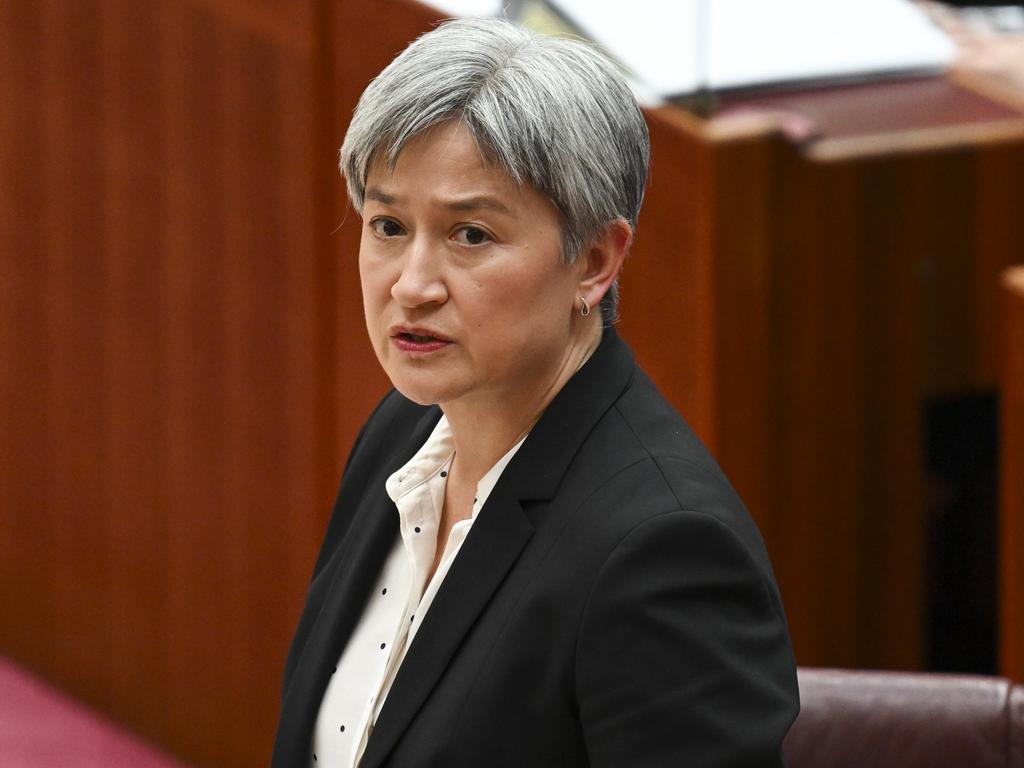Labor’s foreign policy pivot a clear betrayal of our allies


It’s hard to view the situation in any other terms, given the visa denial coincides with two other deeply worrying signals from the Australian government.
While US President Joe Biden and three former prime ministers condemned last week’s decision by the International Criminal Court to issue arrest warrants for Israeli Prime Minister Benjamin Netanyahu and former foreign minister Yoav Gallant, our current government issued a vague statement of support for the ICC’s independence, reinforcing the lack of moral conviction in supporting a fellow democracy fighting an existential war against terrorism.
Just a fortnight ago the government chose to support two fundamentally flawed UN resolutions targeting Israel – resolutions described by the Biden administration as “demonstrating a clear and persistent institutional bias directed against one member state”.

These should be a cause for concern, not only for Jewish Australians but also all Australians.
The resolutions are not new – for 20 years they have been annual fixtures, and Australia and the US, for good reason, have voted consistently against them or abstained.
The first resolution purports to endorse the “permanent sovereignty of the Palestinian and Arab peoples”, though in substance it seeks to hold Israel solely responsible for the current conflict.
Not only does it ignore the ongoing attacks on Israel and threats posed by terrorist organisations intent on Israel’s destruction, and Iran, it even condemns Israel’s establishment of a security fence to protect its civilians from these threats.
On October 7, the world witnessed the catastrophic cost paid by the Israeli people when the security fence between Israel and Gaza was breached by Hamas terrorists.
We can only imagine how much worse it could have been, how many more lives lost, women raped and innocent men, women and children taken hostage if there had been no barrier at all.
The second resolution endorsed by our government last week ostensibly addresses environmental concerns – specifically, pollution from an oil slick that occurred 18 years ago during the 2006 war between Israel and Hezbollah.
Without even mentioning Hezbollah, let alone Iran, which sponsors both Hezbollah and Hamas, the resolution blames Israel for an environmental incident that occurred during a war initiated by Hezbollah in 2006, when it crossed the border and ambushed, killed and captured Israeli soldiers.
No reference to the missiles fired just a few months ago by terrorist Houthis on an oil tanker in the Red Sea.
Up until now, these cyclical anti-Israel resolutions have been recognised for what they are by successive Australian governments of both political persuasions. They are not intended to be a fair accounting; it is about vilifying the state of Israel and exculpating the Palestinian leadership of any responsibility.
And so the shift we’ve seen in recent weeks is more than just symbolic – it’s a sign that the Australian government is turning its back on the enduring bipartisan support for Israel that has been a cornerstone of our foreign policy.
Has the government uncovered new evidence that challenges our understanding of events dating back to 2006 in the war between Hezbollah and Israel? Has it investigated and reassessed Israel’s need for security barriers? Could it have been motivated, as the government has indicated, to “reaffirm the importance of a two-state solution”?
The Biden administration didn’t mince its words on that score, making the point last week that these “one-sided resolutions are purely rhetorical documents” that are part of an “effort to delegitimise Israel” that “will not help advance peace”.
And who was our government’s intended audience for this new messaging? Our US allies or segments of the Australian electorate? Surely, the latter should never be the purpose of our foreign policy.

Syria, a state with one of the worst human rights records globally, was a vocal supporter of these resolutions. No surprise there – one of the resolutions our government supported actually calls for Israel to transfer funds to the Syrian regime led by the butcher Bashar al-Assad. Why would Australia want to position itself in these matters on the side of Syria rather than the US?
And why now, as Islamist terrorists on several fronts have declared war on Israel, and as Hamas continues to hold hostages in underground tunnels? When the stakes have never been higher.
Let’s be clear: bipartisan support for Israel does not mean endorsing every policy of the Israeli government. But it does mean defending Israel against attempts to smear and delegitimise it, especially in international forums such as the UN and the ICC.
The government’s shift should be a cause for concern for every Australian who values our credibility on the world stage.
Because peace in the Middle East will not come from siding with those who seek to wipe Israel off the map, but by standing with allies committed to genuine, lasting solutions.
Jeremy Leibler is president of the Zionist Federation of Australia.






The decision by the Albanese government last week to deny entry to Ayelet Shaked, who served as a minister in the most diverse and centrist government in Israeli history, is at best baffling and may be the final nail in the coffin of principled foreign policymaking by the current Australian government.